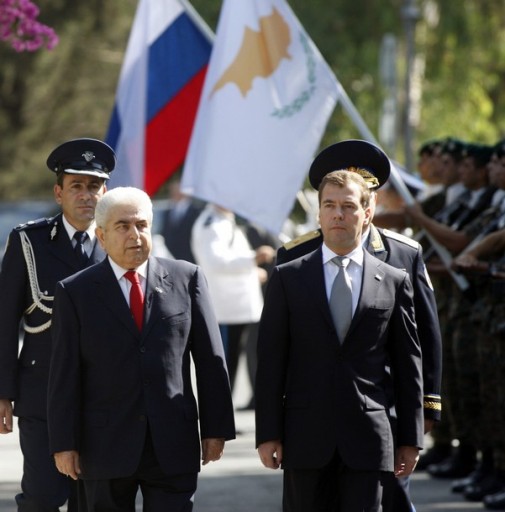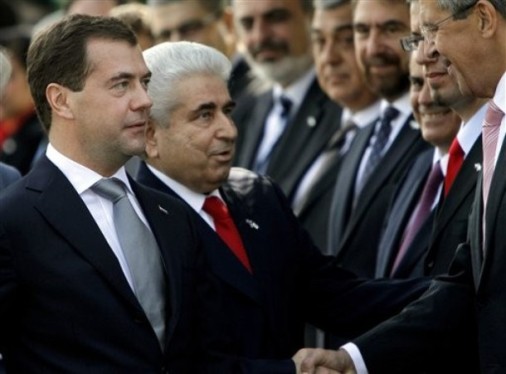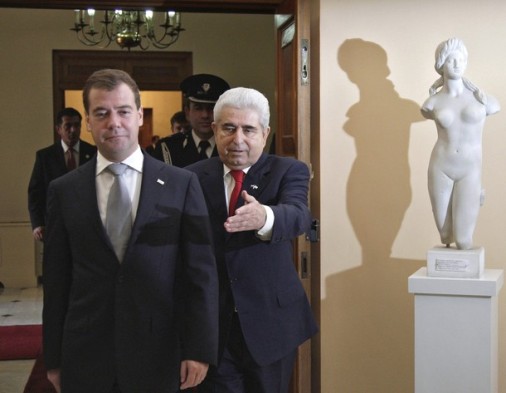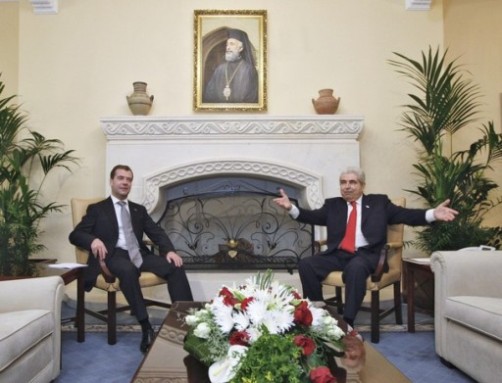 |
| US Assistant Secretary of State for East Asian and Pacific Affairs Kurt Campbell, right, speaks to the media after meeting with South Korean Deputy Foreign Minister Kim Jae-shin, left, in Seoul, 7 Oct. 2010. |
October 07, 2010 (KATAKAMI) --- A top-ranking U.S. diplomat says Washington and Seoul need to "remain in lockstep" to respond to any developments on the Korean peninsula. Kurt Campbell's meetings with South Korean officials come as Pyongyang shows signs that preparations for a power transfer are under way.
Assistant Secretary of State Kurt Campbell repeated the U.S. position that Pyongyang needs to improve relations with Seoul before international talks about dismantling North Korea's nuclear weapons programs can resume.
"The first step, as we've said, has to be re-engagement between North Korea and South Korea,
Campbell said. "I think we're also looking for a clear and demonstrable commitment on the part of the North Koreans to fulfill their commitments that they have made on denuclearization in 2005."
North Korea has recently suggested several levels of talks with South Korea.
Campbell spoke Thursday following talks with South Korean diplomats that he says focused on last week's party congress in North Korea. The rare conference gave powerful posts to Kim Jong Un, the youngest son of absolute leader Kim Jong Il. The posts apparently are to prepare him to succeed his father.
Official North Korean media Thursday reported the younger Kim attended a concert with his father. It is the second reported public appearance this week for the young man, who until recently was almost never seen.
South Korea's Unification Minister says the move toward a power succession in Pyongyang adds to uncertainties about what is happening in North Korea.
Earlier this week, a South Korean presidential security advisor termed the nuclear threat from the North to be at an "alarming level."
Recent satellite photos suggest North Korea may be preparing to restore some operations at its Yongbyon nuclear complex.
The reactor, which produced weapons-grade plutonium, was shuttered three years ago under an international agreement. North Korea has since renounced the deal and threatened to resume operations. Last year, the reclusive impoverished country said its uranium enrichment experiments were in the final stages. Enriched uranium is used for weapons.
There have been on and off negotiations, involving both Koreas, China, the United States, Japan and Russia, since 2003 concerning the North's nuclear weapons programs.
The two Koreas remain technically at war since their civil war halted in 1953 without a peace treaty.
Relations between the two governments have been tense for more than a year. They worsened further in late March when a South Korean naval vessel exploded and sank. An international investigation blamed a North Korean torpedo. Pyongyang denies any responsibility and rejects Seoul's repeated demand it apologize for the sinking as a prelude to improving ties.
VOA










